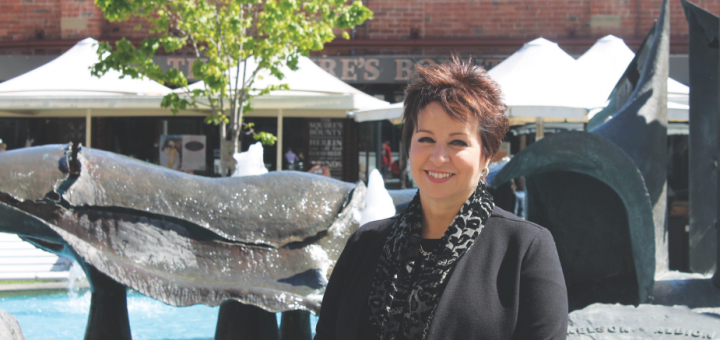With higher tiers of government falling victim to ideology and big business, we need to hear the voices of ordinary people. [12 May 2015 | Peter Boyer]
It’s hard to ignore the solemn, deliberate voice of leading US climate scientist James Hansen talking about the “unthinkable” consequences of today’s emissions and what has to be done.
Last week Hansen told Fran Kelly on ABC Radio National of his proposal for an “honest” price for fossil fuel: a fee for pollution payable at the source by responsible companies, with revenue to be distributed equally to all individuals regardless of standing or wealth.
Hansen is a physicist by training, but on economic policy he’s an ordinary layperson. Some might say he should stick to what he knows best, but I wonder if that’s relevant. The climate debate is no longer about specialist information, but about what ordinary people think.
Here in Australia, the unprecedented threat of climate change is proving beyond the imagination and brainpower of governments at both federal and state levels. The prevailing attitude in the political and business elite is to take the foetal position and avoid mentioning it.
Today’s MPs operate in a bubble. Their ability to serve the public interest has been seriously compromised by the rise of ideology and by well-heeled business lobbying that’s taken over their lines of communication, cutting them off from the rest of us.
Another tier of government – the local one – has two advantages over its state and federal masters: it’s not weighed down by party politics, and it’s closest to the lives of ordinary people.
Councils have always been on the front line of climate change impacts: heatwaves, wildfire, drought, storm, flooding and erosion.
The failure of higher tiers of government have exposed local government’s scant resources to complex financial and legal issues arising out of climate events. But with climate impacts already in train, it has no option but to get involved.
Tasmanian councils are well-attuned to the need to adapt to changing climate. Thanks to a multi-year southern councils project part-funded by the Hobart City Council, all councils now have access to a regional adaptation strategy, a comprehensive basis for their own local planning.
Some councils including Hobart, Kingborough and Clarence have staff dedicated to environmental issues, including planning for climate change and addressing climate-related issues as they arise. The question isn’t whether they should plan and act, but how.
Take the example of Hobart City Council. Having joined Cities for Climate Protection in 1999, it launched its “Greenhouse Local Action Plan” in 2001, seven years before Tasmania’s climate laws were enacted.
By 2006 the city administration had cut its own emissions by 75 per cent, including electricity generation from captured methane emissions at McRobie’s Gully landfill site. It’s since used heat-exchange technology to cut the Hobart Aquatic Centre’s heating bills by 65 per cent.
From 2007 to 2013 it gave rate rebates for solar hot water and energy-efficient homes, and worked with other councils, including Launceston, in helping householders improve their home insulation.
Currently pursuing a five-year low-energy LED street lighting plan, council officers are also looking at ways of saving transport energy, including charging stations for electric cars.
A couple of weeks ago I sat down with Hobart’s new Lord Mayor, Alderman Sue Hickey, to explore her vision for the city’s future and her response to the city’s climate programs and policies.
Acknowledging that humans are influencing climate, Hickey emphasised that she considers herself an ordinary person. “I’m not a scientist, but I am a realist, and I know we have to do something.”
In preparing itself for future challenges, says Hickey, Hobart will be economically better off and a better place to live. She’s proud of the council’s achievements to date, but wants to open more doors to change and innovation in transport and recreation, building and planning.
On the day of our meeting the council voted to seek information from the major banks about energy projects in which its funds are invested and tell them it wants to ensure these meet ethical standards. That doesn’t yet amount to divestment from fossil fuels stocks, but it’s a good starting point.
Most of Hickey’s fellow-aldermen have expressed positions which would support strong climate action, all of which gives hope that this city may yet be a spark to fire up the public imagination.
Learning and expertise must now take a back seat. Climate change isn’t about other people but about us. We need authenticity that comes from among us, from ordinary people like Sue Hickey.

